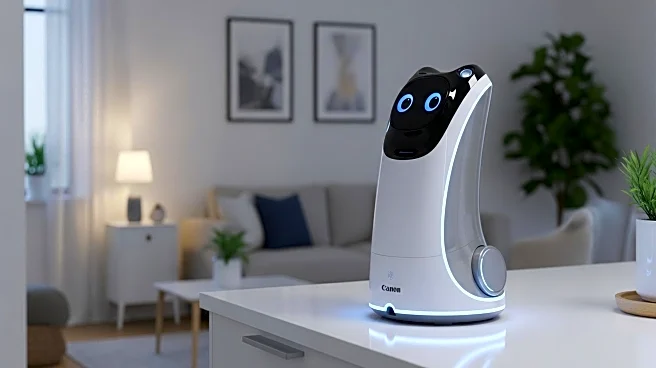What is the story about?
What's Happening?
Consumer Reports has conducted an evaluation of various smart home products, including robotic vacuums, lawn mowers, and AI-powered refrigerators, to assess their effectiveness and value. The report highlights that while these products offer convenience, they often come with higher price tags and complex setup requirements. For instance, Samsung's Bespoke refrigerator, equipped with an AI vision camera, struggled to accurately recognize groceries, particularly packaged items like milk and soda. Robotic lawn mowers require pre-mowing to a specific height before they can operate effectively. On the positive side, robotic vacuums have improved significantly in navigating obstacles and cleaning efficiently. Additionally, smart thermostats, such as the Google Nest 4th Generation Learning Thermostat, are praised for their ability to reduce heating and cooling costs by automatically adjusting temperatures and connecting to utility demand-response programs for potential discounts.
Why It's Important?
The rise of smart home technology represents a significant shift in consumer habits and household management. These products promise increased efficiency and convenience, potentially transforming daily routines and energy consumption patterns. However, the high costs and technical challenges associated with these devices may limit accessibility for some consumers. The effectiveness of AI features, such as those in Samsung's refrigerator, raises questions about the reliability of current technology in practical applications. As smart home devices become more prevalent, issues of privacy and data security also emerge, necessitating careful consideration by users. The success of products like smart thermostats indicates a growing trend towards energy-efficient solutions, which could have broader implications for environmental sustainability and utility management.
What's Next?
As smart home technology continues to evolve, manufacturers are likely to focus on improving the reliability and user-friendliness of AI features. Consumer Reports advises users to be vigilant about privacy settings and data sharing options, suggesting that future developments may include enhanced security measures. The market for smart home devices is expected to expand, with potential innovations aimed at addressing current limitations and increasing consumer trust. Utility companies may further integrate smart thermostats into their energy management programs, offering more incentives for users to adopt these technologies. The ongoing evaluation of these products by organizations like Consumer Reports will play a crucial role in guiding consumer choices and influencing industry standards.
Beyond the Headlines
The integration of AI into everyday household items reflects broader technological trends and societal shifts towards automation and smart living. This development raises ethical considerations regarding data privacy and the potential for increased surveillance within homes. The reliance on AI for routine tasks may also impact traditional labor markets, as automation reduces the need for certain manual jobs. Additionally, the environmental impact of producing and disposing of electronic devices warrants attention, as the demand for smart products grows. These factors contribute to a complex landscape where technological advancement intersects with cultural, economic, and ethical dimensions.
















